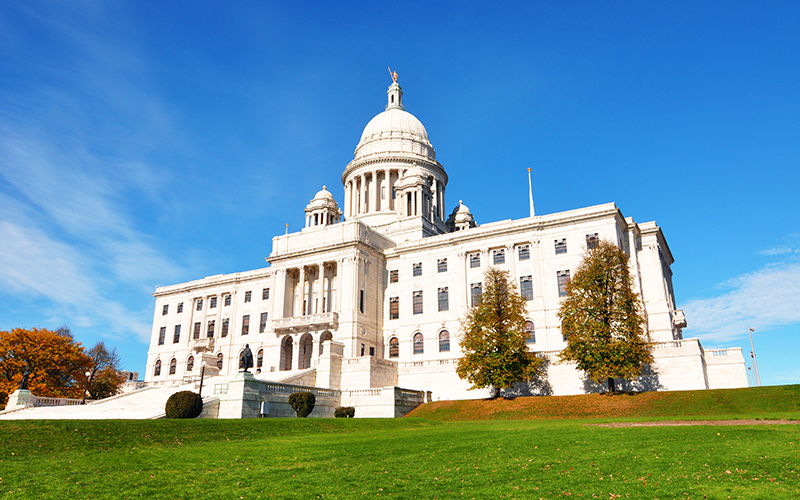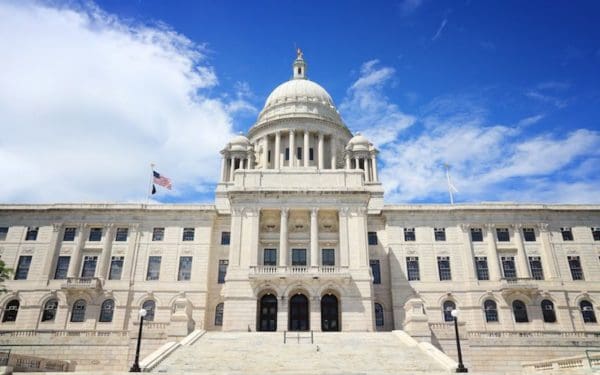
Photo: By Chensiyuan via CC 4.0
When President Trump announced that he was pulling the United States out of the Paris Climate Agreement last summer, leaders across the country stood up and stepped in where the president had stepped out. Among those promising action was Rhode Island Governor Gina Raimondo. Although Rhode Island already had goals for cutting carbon emissions, Raimondo publicly reaffirmed those commitments through an Executive Order pledging the Ocean State to the goals of the Paris Climate Agreement.
But goals are just words on paper when there’s no way to ensure we achieve them. Without requirements or mandates, Rhode Island cannot enforce its climate goals. Even worse, the State lacks any comprehensive plans for even trying to reach them.
That’s why CLF and our allies are advocating for the passage of the Rhode Island Global Warming Solutions Act (GWSA) – House Bill 7827 and Senate Bill 2747. Modeled on similar statutes in Massachusetts and Connecticut, the Rhode Island GWSA mandates economy-wide reductions in emissions, with the ultimate requirement of cutting carbon pollution by 80 percent below 1990 levels by 2050. The bill also sets interim emission goals for 2025, 2035, and 2045.
The time for vague climate goals is over. We must end our addiction to fossil fuels and we must be willing to hold ourselves and our leaders accountable for meaningful action that will cut carbon pollution, create good jobs, and protect our communities.
Cutting Carbon Across the Economy: Electricity, Buildings, and Transportation
Rhode Island is a national leader in both renewable energy and energy efficiency, but those programs address only one of the three largest sectors contributing to carbon pollution: electricity. We have so far failed to tackle the significant emissions created by buildings and transportation. In Rhode Island, like the rest of New England, the transportation sector is actually the largest and fastest growing contributor to carbon pollution in the state.
The GWSA ensures that we are looking at all three of these sectors. Within a year of the bill’s enactment, the state agencies overseeing each of these three areas must issue regulations to reduce their emissions. This will ensure we are looking at carbon pollution across the entire economy and developing more comprehensive programs for meeting our goals.
Giving Teeth to the Resilient Rhode Island Act
The GWSA will complement the 2014 Resilient Rhode Island Act (RRIA), which set aspirational goals for cutting carbon pollution in the state. While that was a good bill and CLF supported it, there’s no way to enforce the RRIA and no consequences if the State fails to meet its goals. Simply being able to pat ourselves on the back because we have a climate law on the books is no longer good enough.
The GWSA sets enforceable mandates, and it requires government agencies to take action to create plans that will reduce carbon emissions.
The good news for Rhode Island is that the GWSA is not the only climate bill being considered this legislative session. CLF is also supporting the EnergizeRI carbon pricing bill, which will put a price on carbon pollution, then reinvest that revenue in energy efficiency and renewable energy programs. The GWSA provides a different but complementary route to achieving the same goal of reducing carbon emissions. The GWSA gets there through regulations set at the State level, while the EnergizeRI bill reduces emissions by pricing carbon.
We Know the GWSA Will Work Because the Results Are in From Massachusetts
The Global Warming Solutions Act will be an effective tool for Rhode Island to meet and enforce carbon emission reduction goals. We need only look to Massachusetts to see what a powerful tool this bill will be. The Commonwealth passed its GWSA ten years ago, and it’s working:
- Massachusetts has made huge gains in solar, installing more than 2,000MW of power and rising to second in the nation for solar jobs.
- Massachusetts enacted a Clean Energy Standard regulation requiring 80% of electricity sold in Massachusetts to be carbon-pollution free by 2050.
- Massachusetts set a declining annual cap on carbon emissions from all large, commercial in-state power
Local Action Matters
Rhode Island must act now to jump-start our renewable energy economy. Climate change is a problem that can’t wait. Last year, 2017, was the second hottest year on record, surpassed only by 2016. Scientists warn that if we don’t take meaningful steps now, it will be too late to reverse this trend. In announcing our withdrawal from the Paris Climate Agreement, President Trump has put the United States on the wrong side of history. We have an opportunity – and an obligation – to right this wrong through local action. Passing the Global Warming Solutions Act will show that Rhode Island’s pledges hold weight and position us as a leader for the rest of the nation to follow.
More importantly, it will do more than cut carbon emissions – it will create lasting local jobs and help to protect Rhode Island communities from the worsening impacts of our changing climate.
Contact Your Legislators and Governor Today
The GWSA is pending in both the House and the Senate. House Bill 7827 is in the House Environment and Natural Resources Committee and Senate Bill 2747 is pending in the Senate Environment and Agriculture Committee. Please, take action now to ensure it passes this legislative session. Contact your legislator and ask them to support the GWSA.



